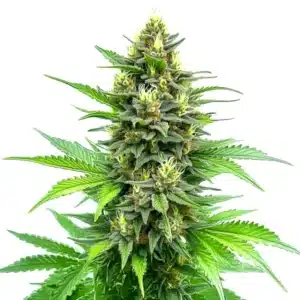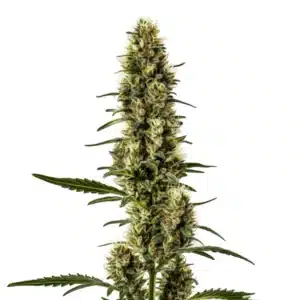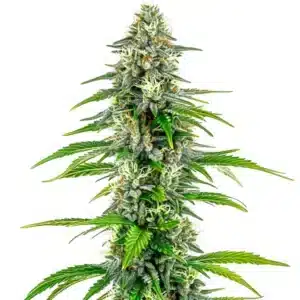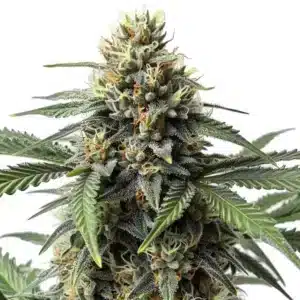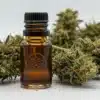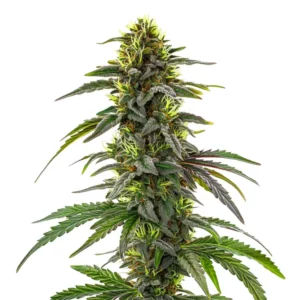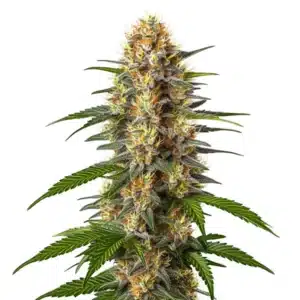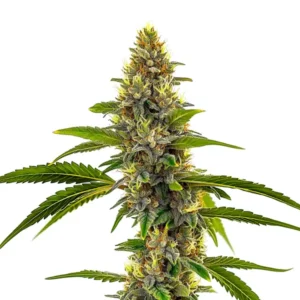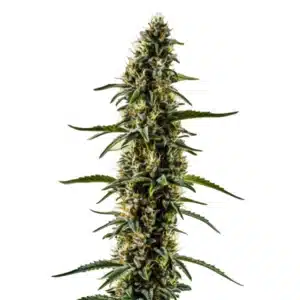
Neurogenesis CBD: Enhancing Brain Health Naturally
Exploring Neurogenesis and CBD
Defining Neurogenesis
Neurogenesis describes the birth of new neurons in the adult brain, mainly in the hippocampus and subventricular zone. In the past, scientists believed neuron growth ended after development, but they now prove the brain can generate fresh cells throughout life. This ongoing process underpins memory, learning, and mood regulation. When neuron production slows, people may face cognitive decline or mood disorders. By exploring how new brain cells emerge, researchers aim to harness this process for therapy. A solid comprehension of neuron birth helps readers value novel treatments and ongoing studies.
Researchers identify growth factors, hormones, and environmental stimuli as key drivers of neuron formation. Physical exercise, mental challenges, and a balanced diet can boost cell proliferation. Conversely, stress and inflammation may harm neuron growth. By mapping these factors, scientists develop strategies to optimize brain health. A growing interest in natural compounds has led to studies on cannabinoids and their impact on neuron birth. With rising public interest, many seek clear insights into how lifestyle and supplements might combine to encourage neural renewal.
Recommended Strains
Carmagnola CBD
|
|
CBD | 9% – 12% (Medium) |
|
|
Type | CBD Feminized |
|
|
Yield | Low |
|
|
Phenotype | 20% Indica / 80% Sativa |
Candyland
|
|
THC | 18% - 20% (Medium) |
|
|
Type | Feminized |
|
|
Yield | High |
|
|
Phenotype | 30% Indica / 70% Sativa |
How CBD Interacts with Brain Cells
CBD binds to receptors in the endocannabinoid system, which helps regulate cell signaling in the brain. This compound interacts with CB1 and CB2 receptors indirectly, boosting anandamide levels and modulating synaptic activity. By influencing these pathways, CBD can support neuron survival and connectivity. Researchers now explore how CBD adjusts calcium signaling, neuroinflammation, and oxidative stress. These mechanisms matter because they shape how actively brain cells regenerate. Taking these interactions into account, scientists aim to refine CBD applications for neural support.
Lab studies reveal CBD’s anti-inflammatory and antioxidant actions in neural tissue. By lowering pro-inflammatory cytokines, CBD can create a favorable environment for fresh neuron growth. Additionally, its antioxidant properties limit damage from free radicals, which otherwise impair cell formation. Early animal research shows CBD may boost markers of neuron development in rodents. While human data remains limited, these findings highlight a potential pathway through which CBD could promote healthy neural circuits.
Preliminary Research Findings
Several small trials assess neurogenesis cbd in animal models, showing promising increases in hippocampal neuron markers. Researchers administer CBD to rodents under controlled conditions and then measure new cell formation with labeling techniques. These early studies report up to a 30 percent rise in neuron proliferation after daily CBD treatment. Although more work remains, these findings hint that CBD could modulate key signals for neural growth.
In human trials, researchers note improved cognitive scores in participants taking CBD alongside lifestyle changes. While direct measures of neuron birth in humans remain challenging, blood biomarkers suggest reduced inflammation and oxidative stress. Participants with mild cognitive issues report clearer thinking and better memory after several weeks of CBD supplementation. Continued studies will help clarify how these effects translate into long‑term brain health improvements.
Promos & Deals
CBD’s Effect on Neural Growth
Mechanisms of Action in the Brain
CBD influences various signaling pathways that govern neural growth. It modulates the Wnt/β‑catenin pathway, essential for cell division and differentiation. By adjusting Wnt signals, CBD may help guide stem cells toward neuron fate rather than glial fate. Moreover, CBD appears to activate PPARγ receptors, which regulate gene expression linked to cell survival and metabolism. These combined actions set the stage for creating a supportive environment where new neurons can thrive.
Additionally, CBD impacts brain‑derived neurotrophic factor (BDNF), a protein that promotes neuron survival and synaptic plasticity. Animal studies reveal CBD enhances BDNF expression in the hippocampus, a key site for learning and memory. With more BDNF available, neural networks can form stronger connections, improving functional resilience. These insights clarify how CBD might serve as a biochemical signal for supporting ongoing neuron renewal and connectivity.
Studies Linking CBD and Neuroprotection
Preclinical research shows CBD shields neurons from toxic insults, including oxidative agents and inflammatory cytokines. In models of stroke or trauma, CBD treatment reduces cell death and preserves tissue integrity. These protective effects stem from CBD’s ability to calm microglial activation and suppress glutamate excitotoxicity. By doing so, CBD creates conditions that favor neuron regeneration rather than scarring. Researchers see this as a vital first step toward therapeutic neuroprotection.
Clinical observations in patients with multiple sclerosis and Parkinson’s disease indicate CBD may slow symptom progression. Though data remain preliminary, some participants report steadier motor control and reduced neuroinflammation markers in cerebrospinal fluid. These outcomes point to CBD’s potential to both protect existing neurons and support the birth of new ones in damaged regions. As trials expand, we will better grasp how to integrate CBD into neuroprotective regimens.
Benefits for Cognitive Function
Several rodent studies link CBD treatment to improved performance in maze and memory tests. Animals receiving CBD navigate mazes faster and recall object locations more accurately than controls. Researchers attribute these gains to enhanced hippocampal neurogenesis and synaptic plasticity. With healthier neural networks, animals exhibit sharper learning and recall abilities.
Human pilot studies echo these findings with participants reporting clearer mental focus and fewer “brain fog” episodes. Patients taking CBD alongside mindfulness practices note faster information processing and better attention spans. While placebo‑controlled trials remain scarce, these anecdotal reports encourage further investigation into how CBD supports daily cognitive tasks.
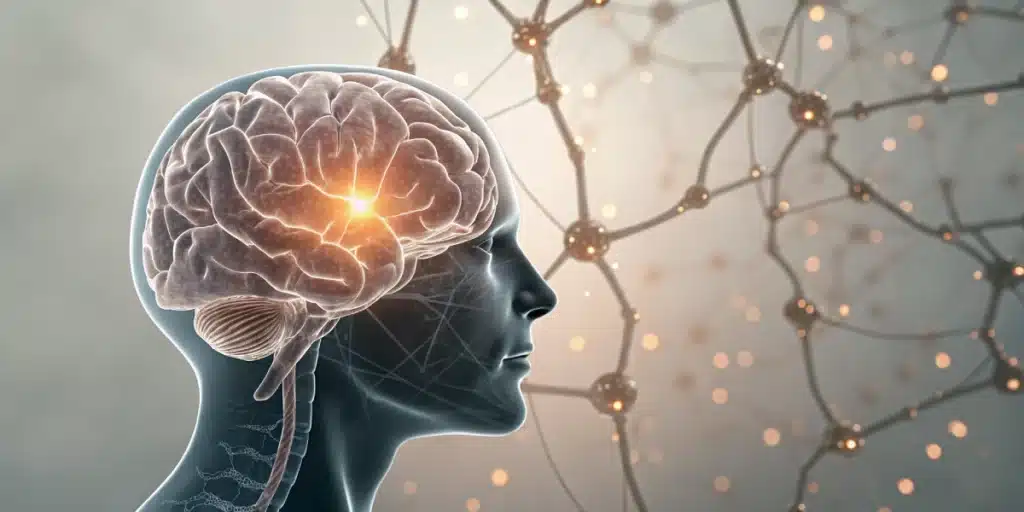
Therapeutic Applications and Benefits
Potential for Treating Neurodegenerative Disorders
Researchers explore CBD therapies for Alzheimer’s and Parkinson’s diseases, conditions marked by neuron loss. By combining CBD with standard treatments, some trials aim to slow disease progression and reduce symptoms. Early data show CBD may clear toxic protein aggregates and encourage neuron replacement in animal brains. This dual action could translate into therapies that not only ease symptoms but also address underlying neuron damage.
In Huntington’s disease models, CBD administration preserves motor function and reduces neuronal death. Scientists believe CBD’s antioxidant and anti‑inflammatory effects work together to protect vulnerable neurons. As research advances, clinicians hope to define dosing regimens that maximize benefits while minimizing side effects.
Benefits for Mood and Mental Health
CBD’s calming effect on the endocannabinoid system offers benefits beyond neuron birth. By reducing anxiety and stress hormones, CBD creates a mental space where new neurons can form without harmful interference. Studies in anxious rodents link CBD treatment to both lower cortisol levels and increased neuron proliferation in the hippocampus.
People experiencing mild depression report mood lifts and sharper thinking after a few weeks of CBD use. These effects may stem from a combination of reduced anxiety, better sleep, and enhanced neuron formation. Taken together, CBD’s actions can support emotional balance alongside brain health improvements.
Emerging Treatment Protocols
Clinicians now test CBD in combination with cognitive training and physical activity to maximize neural renewal. These multimodal protocols aim to leverage CBD’s biochemical effects alongside lifestyle‑driven growth factors. Early pilot programs pair daily CBD doses with memory exercises, resulting in measurable gains on cognitive scales.
Other protocols integrate CBD into telehealth programs for seniors, offering guided sessions on nutrition, movement, and brain games. Patients who follow these integrated regimens often report sustained improvements in memory and mood. As protocols evolve, we expect more personalized plans to optimize neural regeneration for various conditions.
Dosage and Administration Considerations
Recommended CBD Dosages for Neuroprotection
Experts suggest starting with low daily doses of 20–25 mg of high‑quality CBD oil and adjusting upward based on tolerance. Some trials use doses up to 300 mg per day for neurodegenerative conditions, but most people see benefits between 50 and 100 mg. It makes sense to begin conservatively and increase slowly under professional supervision.
Consistency matters: taking CBD at the same time each day helps maintain stable blood levels. If you take higher doses, split them into morning and evening servings to reduce potential side effects. Always consult a healthcare provider familiar with cannabinoid therapies before making significant changes.
Methods of Consumption for Brain Health
Tinctures and sublingual drops offer fast absorption and precise dosing for those focused on brain support. Vaping provides rapid effects but comes with respiratory risks. Edibles and capsules deliver slower, sustained release, which some users prefer for overnight protection.
Transdermal patches show promise for steady, long‑term CBD delivery directly to systemic circulation. Topical creams and balms won’t reach the brain in significant amounts and suit localized relief only. Choose a form that fits your routine and therapeutic goals.
Safety and Efficacy Considerations
CBD appears well tolerated in most people, with mild side effects such as dry mouth or slight fatigue. Rarely, CBD may interact with medications metabolized by the liver’s cytochrome P450 enzymes. Always review your current prescriptions with a professional before starting CBD.
To ensure product safety, select third‑party tested CBD from reputable sources. Look for clear labeling of CBD concentration, absence of heavy metals, and compliance with local regulations. Proper sourcing and dosing practices will maximize benefits while minimizing risks.

FAQs about Neurogenesis CBD
How does CBD support neurogenesis?
CBD modulates the endocannabinoid system, reducing inflammation and oxidative stress in the brain. By boosting growth factors like BDNF and adjusting key signaling pathways, CBD creates an environment where new neurons can form more readily.
What research supports CBD’s role in brain health?
Animal studies show CBD treatment increases neuron markers in the hippocampus and improves performance on maze tests. Early human reports note better memory scores and reduced inflammation biomarkers after several weeks of CBD use.
Can CBD help treat neurodegenerative conditions?
Preclinical models of Alzheimer’s, Parkinson’s, and Huntington’s diseases demonstrate CBD’s neuroprotective and neuron‑boosting effects. Ongoing trials aim to translate these findings into clinical therapies that slow disease progression and improve quality of life.


